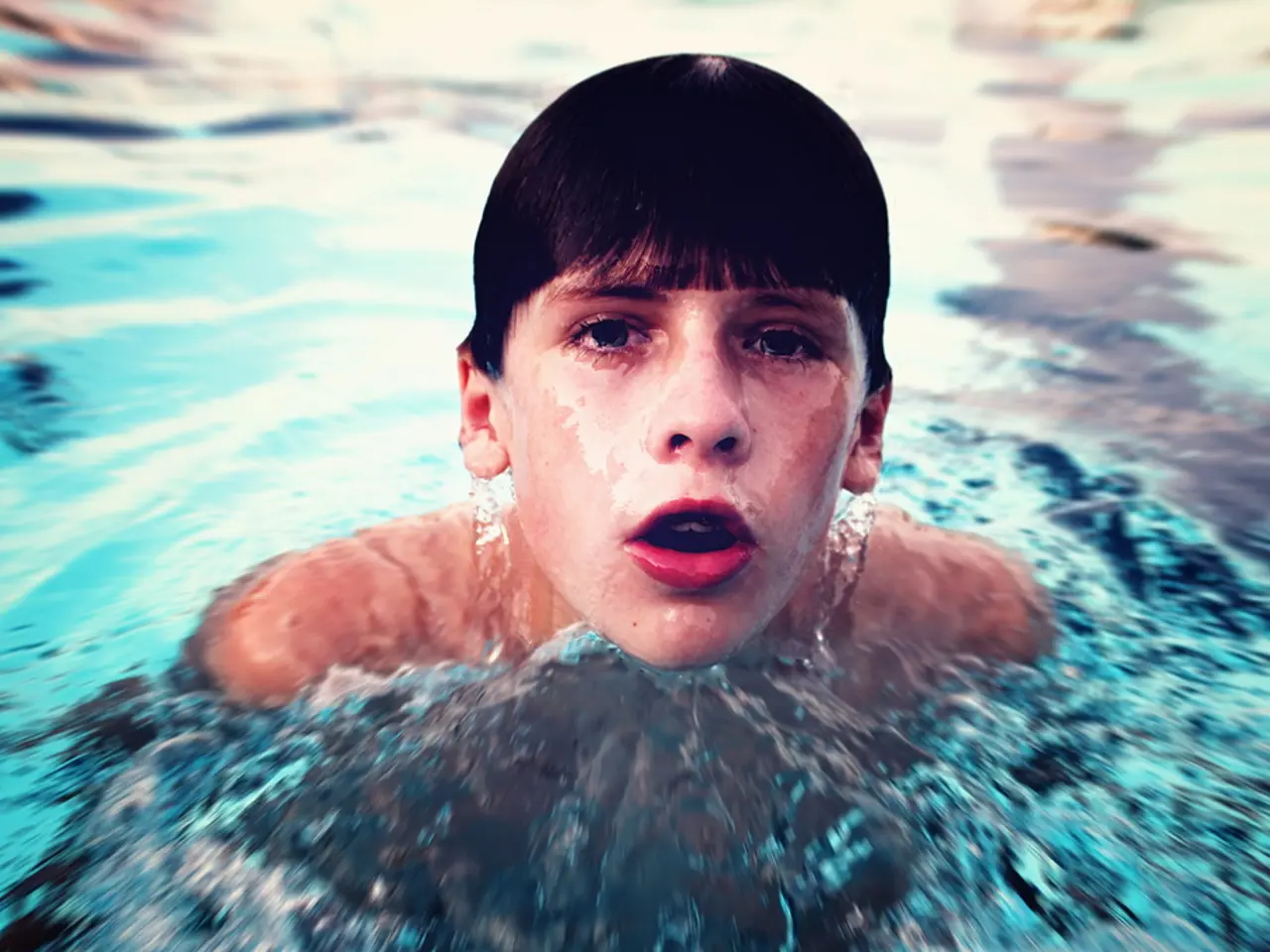Failure of Non-Swimmers' Genération and Actions Parents Can Take
Swimming, a beloved pastime and essential life skill in Germany, is facing a concerning trend. A significant number of children are not learning to swim proficiently by the end of primary school, according to the German Life Saving Association (DLRG). This article explores the factors contributing to this issue and presents creative solutions to address it.
One of the primary challenges is the lack of access to swimming pools, particularly in schools. Many schools, such as those in Berlin, do not have their own pools, necessitating travel to public facilities. This can be logistically challenging and costly for some families. Additionally, swimming lessons are often limited to specific grade levels, providing insufficient time for all children to reach proficiency.
Economic constraints also play a role. Families with limited financial resources may struggle to afford swimming lessons outside of school programs, especially if they are not covered by public services. Fear or lack of confidence in the water can also be a barrier to learning for some children.
To tackle these challenges, several creative solutions have been proposed or implemented. Community-based programs, such as Schwimmschule Wasserlust in Düsseldorf, offer personalized and small group lessons to help children build confidence and skills in a supportive environment. Public-private partnerships can help increase access to pools by providing affordable or free swimming lessons for underprivileged children.
Innovative teaching methods, like game-based learning, can make swimming more appealing and less intimidating for children. Outreach programs that bring swimming lessons to underserved communities or areas with limited pool access can help increase participation rates. Strengthening collaborations between schools and community swimming programs can ensure more children have the opportunity to learn.
A mobile swimming pool in a truck trailer brings swimming lessons directly to schools and kindergartens that don't have a nearby pool. Martin Holzhause of the DLRG recommends water familiarization exercises at home, such as blowing a table tennis ball through water, putting your face in the water in the bathtub, or letting water run over your head in the shower, to prepare children for swimming lessons.
The state of Baden-Württemberg is promoting various programs to tackle the lack of swimming lessons, such as supporting beginner swimming groups at schools and the "SchwimmFidel" program. However, it's crucial to note that the seahorse badge is not proof of safe swimming.
Lastly, it's worth mentioning that around one in five public primary schools in Baden-Württemberg did not offer swimming lessons last year, and nearly half of children from households with a monthly net income of less than €2,500 cannot swim. A nationwide swimming pool needs assessment plan is needed where swimming pools are lacking or in need of renovation, according to the DLRG.
By addressing these factors and implementing creative solutions, we can help ensure more children in Germany learn to swim safely and enjoy the benefits this life skill offers.
Science and health-and-wellness projects can focus on researching innovative teaching methods to make swimming lessons more engaging for children. For example, exploring game-based learning or water familiarization exercises for home use could help increase confidence and skills in children who are afraid or lack confidence in the water.
Fitness-and-exercise programs can collaborate with schools and community organizations to promote water safety and provide opportunities for children to learn swimming, especially those from low-income households. Establishing partnerships and outreach programs in areas with limited pool access or offering mobile swimming pools can ensure equal access to swimming lessons, fostering a nationwide initiative for teaching this essential life skill.




